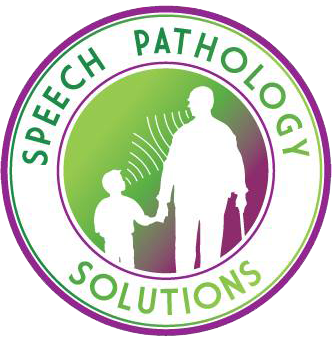Understanding articulation milestones is essential for parents who want to support their child’s speech development. These milestones provide a guideline for when children typically begin producing certain speech sounds and forming words, allowing adults to track their progress in communication skills. Every child develops at their own pace, but knowing what to expect can help families recognize when extra support may be beneficial. From early babbling to forming complete sentences, speech skills evolve rapidly during the first five years of life.
Articulation Milestones from Infancy to Preschool
Infancy (0–12 Months)
The foundation of speech begins in infancy. During the first year, babies experiment with sounds through cooing and babbling. They explore pitch, volume, and rhythm, often producing consonant-vowel combinations such as “ba” or “da.” Around six to nine months, many infants start to recognize and respond to their own name, as well as simple words like “mama” or “dada.” While these early vocalizations may not be clear words, they are critical steps toward later speech development. Parents play a vital role by responding to these sounds, encouraging imitation, and establishing the back-and-forth interaction that supports language growth.
Toddler Years (1–3 Years)
Between the ages of one and three, children transition from simple sounds to recognizable words and phrases. During this stage, toddlers typically achieve key articulation milestones, such as producing a growing number of consonant sounds, combining two to three words, and following simple instructions. Speech may still be unclear, but most children are understood by familiar adults. Toddlers also begin experimenting with sentence structure, repeating words from adult speech, and expressing needs and ideas verbally. Consistent engagement, reading aloud, and narrating daily activities provide rich opportunities to reinforce these early milestones.

Preschool Years (3–5 Years)
Preschool marks a period of rapid refinement in speech skills. By this stage, most children can use full sentences, pronounce many consonants accurately, and communicate ideas effectively. They are expanding their vocabulary, learning new words daily, and understanding more complex language structures. Important articulation milestones in preschool include the ability to articulate words clearly enough for unfamiliar adults to understand, participate in conversations, and begin storytelling. While some sound substitutions or errors are typical at this age, ongoing practice and exposure to clear speech help children achieve increasingly precise articulation.
How Speech Therapy Can Help
While variations in speech development are normal, some children may benefit from support if they struggle to reach key articulation milestones. Speech therapy provides structured strategies to improve clarity and confidence in communication. Certified speech-language pathologists evaluate a child’s current speech abilities and create individualized plans to target specific sounds or patterns. Therapy often involves interactive exercises, such as repeating words, practicing sounds in context, and engaging in playful activities that encourage verbal expression.
Parents are also integral to the therapy process. Therapists guide parents on how to reinforce sounds at home through everyday routines, reading, and conversation. These approaches not only help children catch up to typical milestones but also strengthen overall communication skills, social interaction, and readiness for school. By addressing articulation early, children can develop more effective and confident speech as they grow.
Why Choose Speech Pathology Solutions
At Speech Pathology Solutions, pediatric speech therapy is delivered by experienced and certified professionals who specialize in helping children achieve articulation milestones. The team works closely with families to design personalized therapy plans that address each child’s unique developmental needs. Sessions combine evidence-based strategies with engaging, age-appropriate activities to encourage consistent progress.
With locations in Wall and West Creek, NJ, Speech Pathology Solutions ensures that families have convenient access to high-quality care. By partnering with parents, we support children in meeting their speech goals and fostering confidence in everyday communication. Scheduling an evaluation allows families to identify areas of need and start a tailored plan that nurtures speech development from infancy through preschool. To learn more or book an appointment, contact us and take the first step toward supporting your child’s speech growth.

Articulation Milestones FAQs
What are articulation milestones?
Articulation milestones are age-based guidelines that describe when children typically begin producing specific speech sounds, words, and sentences. They help parents track speech development and identify potential delays.
When should my child start speaking recognizable words?
Most children begin saying their first recognizable words around 12 months. By age two, many can combine two to three words, and by preschool, they are forming complete sentences.
What is considered a typical delay in speech development?
A speech delay may be suspected if a child consistently struggles to produce sounds, form words, or be understood by familiar adults past the typical age range for these milestones. A speech-language pathologist can provide evaluation and guidance.
How can speech therapy help if my child is behind on milestones?
Speech therapy targets specific speech sounds and patterns, improves overall clarity, and builds communication confidence. Therapists use structured exercises, play-based activities, and parent guidance to reinforce progress at home.
Can all children catch up to articulation milestones with therapy?
Most children make significant improvements when therapy begins early. Progress varies based on individual needs, the severity of delays, and consistent practice at home.
What role do parents play in supporting articulation milestones?
Parents can reinforce speech skills by engaging in conversation, reading aloud, modeling correct pronunciation, and practicing sounds at home. These strategies enhance therapy outcomes and everyday communication.

